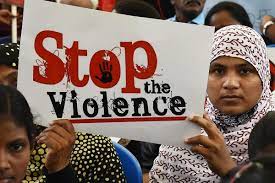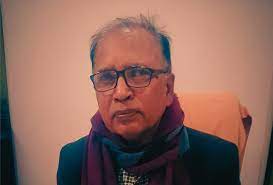Dalit atrocities: Conviction rate low in Gujarat

The state government system is often found ineffective when it comes to punishing those who commit crimes against Dalits.
By Dilip Singh Kshatriya
AHMEDABAD: Even as the nation is celebrating 75 years of independence, atrocities against Dalits are continuing across the country. Worse, the conviction rate in such cases remains low. Gujarat, otherwise a developed state, best illustrates the plight of Dalits. Conviction rate in cases of Scheduled Caste atrocities between 2018 and 2021 was a mere 3.065 per cent in the state, much lower than the national average, according to data tabled in Rajya Sabha.
As recently as Friday, two police constables were suspended for beating up a Scheduled Caste child. The minor was allegedly found in possession of illegal liquor in the Nawagam Ghede area of Jamnagar district. On a complaint from the minor’s father to district policy chief, an inquiry was ordered and subsequently the police personnel were suspended by Jamnagar Police Superintendent.This is not the first incident that has come to light. It is unlikely to be last either.
The state government system is often found ineffective when it comes to punishing those who commit crimes against Dalits. Ruling BJP cannot escape the responsibility for this state of affairs because most of Assembly seats reserved for SC members have been under BJP rule for more than 27 years now. Out of 5,369 cases registered during 2018-2021, only 32 cases were proved against the accused while 1,044 cases have been decided. In 1,012 cases the accused were acquitted. These include serious cases like murder and rape.
Writer and Dalit rights activist Alice Morris sees this trend as alarming. “I disagree with the data. This data may be wrong because, as per my knowledge, there are many more cases than the registered data. Even NCRB data is underestimated.”
Talking about the low conviction rate, Alice said: “If you look closely at the cases in which punishment has been ordered, there will be support behind some NGO or some powerful section of the society. Most of the time, the accused, the complainant and the witnesses are all from the same place, so they receive social and other pressures and because of this many cases go unregistered.”As per Dave, in most cases it is found that low conviction rate is not because of falsity of charges but because of shoddy investigations by the police.
ourtesy : TNIE
Note: This news piece was originally published in thenewindianexpress.com and used purely for non-profit/non-commercial purposes exclusively for Human Rights







